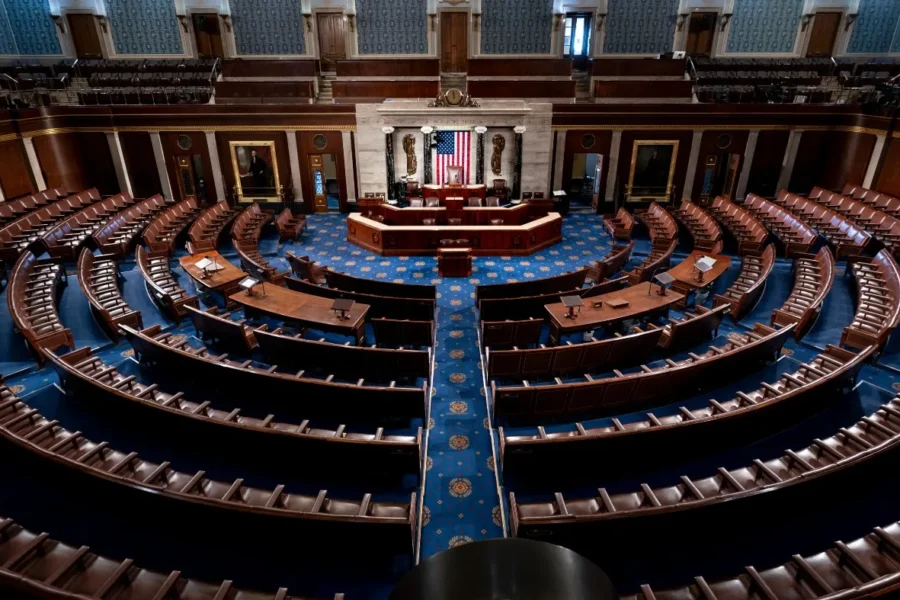In Washington, as well as elsewhere, it’s “out with the old, in with the new” as the calendar turns a new year. The 116th Congress of the United States has been retired, and the 117th Congress began January 3 as the Senate and the House of Representatives were gaveled in. The House Democrat majority wasted no time in re-electing Nancy Pelosi as Speaker and offering a new set of chamber rules designed to tighten its grip on the narrowest party margin in 100 years by limiting opposition amendments to stand-alone legislation.
One positive trend over the last two years has been that although the House has been under pro-abortion management since 2018, none of the pro-life budgetary riders was lost in the 116th Congress. If the Georgia Senate races turn up in the GOP’s favor tomorrow, the Hyde Amendment, Coates-Snowe Amendment, Siljander Amendment and other important pro-life protections should remain in place for at least another two years.
Of course, all proposed legislation expires with the 116th Congress and must be re-introduced. Here’s a recap from the last Congress:
Affordable Care Act (ACA) – Abortion Surcharge: Rep. Jeff Duncan (R-SC) led 81 Members in a letter to Health & Human Services Secretary Alex Azar on October 24, 2019 asking for a final rule codifying the surcharge for state qualified health plans covering abortion. HHS issued a final rule on December 20th, 2019 fixing an Obama-era rule that permitted some ACA health plans to hide an abortion surcharge within the general insurance premium—an act completely counter to congressional intent when the ACA became law. Consistent with federal law, HHS now requires that elective abortion be charged as a separate premium in states where it is available in order to make it clear to consumers what their premiums are paying for and allow for the transparency that enables them to exercise their right of conscience.
The Born Alive Abortion Survivors’ Protection Act (H.R. 962) would add enforcement provisions to federal protections for human beings born alive during abortions. It was the subject of a discharge petition, which garnered 205 of the 218 signatures needed to force a vote on the House floor. Now that the 2020 elections have made the pro-abortion House majority razor-thin, look for a renewed and potentially successful effort to force a vote in the new Congress. A companion bill, S. 311 (Sen. Sasse (R-NE) and 50 cosponsors), was the subject of a cloture vote on February 25, 2020, which failed 56-41.
Rep. Debbie Lesko (R-AZ) introduced the “Saving Children Act” (H.R. 956) on March 22, 2019 with 43 cosponsors. Aimed at prohibiting gruesome “dismemberment abortions”, it was referred to the Subcommittee on Crime, Terrorism, and Homeland Security, but no further action was taken.
The bipartisan “Palliative Care Act” (H.R. 647) would have required HHS to provide support and training for Palliative Care and Hospice Education Centers. It passed the House on October 28, 2019but the Senate did not take it up.
The “No Abortion Bonds Act” (H.R. 219) was introduced with 83 cosponsors on January 3, 2019 and referred to the House Committee on Ways and Means. No action was taken.
Sen. John Kennedy (R-LA) introduced S. 182, the “Prenatal Nondiscrimination Act (PRENDA),” with 15 cosponsors on January 17, 2019. The bill would prohibit abortions based on the gender of the baby, but no action was taken in the Senate.
Rep. Ann Wagner (R-MO)’s complementary PRENDA bill (H.R. 2373) was introduced with 50 co-sponsors on May 20, 2019, and referred to the Subcommittee on the Constitution, Civil Rights, and Civil Liberties, which took no action.
Sen. Kevin Cramer (R-ND)’s “Patients’ Rights Act” was introduced with 3 cosponsors on June 26, 2019, and referred to the Committee on Health, Education, Labor, and Pensions, where no action was taken. It would have required that all federally funded entities certify that funding recipients protect all human lives, including those not yet born, newly born, and ill or at the end of life.
Sen. Kelly Loeffler’s (R-GA) “Woman’s Right to Know” bill (S. 3388) was introduced with 7 cosponsors on March 4, 2020, and referred to the Committee on Health, Education, Labor, and Pensions, which took no action. It would have mandated basic informed consent for abortion under the federal Commerce Clause.
Sen. Lindsey Graham’s (R-SC) Pain-Capable Unborn Child Protection Act (S. 160) was introduced with 48 cosponsors on January 16, 2019. The Senate Judiciary Committee held a hearing, but did not vote on the bill, in April of that year.
The “Ensuring Accurate and Complete Abortion Data and Reporting Act” (S. 2585) was introduced by Sen. Joni Ernst (R-IA) and 14 co-sponsors on September 26, 2019 and referred to the Committee on Finance. It would have required states to report abortion data to the Centers for Disease Control as a condition of receiving federal Medicaid.
The “Support and Value Expectant Moms and Babies Act” (S. 3072) was introduced by Sen. Cindy Hyde-Smith (R-MS) with 27 co-sponsors on December 17, 2019 and referred to the Committee on Health, Education, Labor, and Pensions, which took no action.
Sen. John Kennedy’s (R-LA) Pregnant Women Health & Safety Act (S. 3226) was introduced with 3 cosponsors on January 21, 2020, and referred to the Committee on the Judiciary, which took no action. It would have imposed federal clinical requirements on abortion facilities receiving federal funding.
On the pro-abortion side of Congress, several measures were proposed to expand abortion, but none was enacted:
The “Women’s Health Protection Act,” (S. 1625) essentially a Roe-style abortion expansion bill, was introduced by Sen. Richard Blumenthal (D-CT) with 43 cosponsors on May 23, 2019, and referred to the Judiciary Committee, where it received no action. The House version (H.R. 2975) was introduced by Rep. Judy Chu (D-CA) with 216 cosponsors on May 24, 2019, and was referred to the Subcommittee on Health, where no action was taken.
The “Equality Act” (H.R. 5) passed the House on May 17, 2019 but did not move in the Senate. The bill would expand the legal definition of “sex” under federal discrimination law, including by adding “abortion” under “pregnancy and maternity” protections.
The 117th Congress has many opportunities to expand on the enthusiasm of pro-life lawmakers and pass legislation that defends Life and protects the conscience rights of taxpayers and healthcare professionals.
Americans United for Life and its pro-life partners will be working hard to provide critical research, briefings, and legislative language to make sure Senators and Representatives have the tools to defend Life in the 117th Congress.




